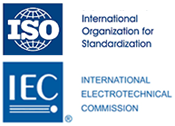What is calibration?
Because of various factors such as the number of times of use of the measuring device, use environment, measurement values deviating from peak performance do not match, and the degree of such discrepancy should be confirmed or adjusted through calibration.
- National Standards Framework Act -
Summary
The internationally accredited calibration institution is an officially approved by the accreditation organization suitable for law or international standards, and qualified assessors evaluates the quality management system and technology level of the institution in accordance with the relevant standards (KS Q ISO/IEC 17025).
Accreditation Organization
Establishment of accreditation system according to the requirements of ISO/IEC 17011
Calibration Institution
KS Q ISO/IEC 17025,
Recognized as the evaluation by the accreditation organization according to the requirements notified by the head of the accreditation organization
Customers
Official tests (inspection) according to various standards and technical regulations within a stable range Report Service
In order to maintain the precision and accuracy of the measuring instrument, it aims to keep measurement errors that can occur because of continuing use of the measuring instrument, wear, elapse of life and changes in the use environment, etc. within the allowable tolerance by periodically calibrating with a standard with higher precision accuracy to maintain traceability with the national measurement standard, within the allowable tolerance.
The ultimate purpose of this system is to ensure the homogeneity and performance of products in the manufacturing process, and to secure external reliability of the measurement results calculated by testing/research institutes.
Background for the Introduction of System
| Domestic factors |
- There is the necessity to improving calibration capabilities of accredited calibration institution and securing excellent manpower
- There is the necessity to increase the reliability of calibration reports from domestic accredited calibration institutions |
| External factors |
-There is the necessity to resolve the differences between the system and applied standards through conformance with international standards in order to resolve technical barriers to trade, and to introduce a conformity assessment system suitable for international practices and standards.
- There is the necessity to maintain traceability of measurement according to internationally agreed standards (SI unit) and reliability of measurement results for fair business transactions. |
Since developed countries are gradually increasing technological barriers for the protection of their own industries and consumers, safety and environmental protection, they have enhanced the accreditation system for internationally accredited calibration institutions to the international level and concluded mutual recognition agreements between accreditation organizations.
The effect of recognition of the internationally accredited calibration institutions according to international standards
- 01
- Grant international public confidence to the calibration results of the internationally accredited calibration institutions
- 02
- Secure the reliability of the report by expressing the uncertainty of measurement in the calibration report
- 03
- Increase the reliability of measurement results and improve calibration capability by participating in proficiency tests both at home and abroad on a regular basis such as comparative tests between test institutions
- 04
- Reduce export cost by eliminating redundant inspections through the establishment of a network for mutual recognition between countries and regions
Measurement traceability
Overview of Measurement Traceability
The term traceability is described in the “International Vocabulary of Basic and General Terms in Metrology” as follows. “Standard values or characteristics of a measurement result that can be linked to a clear criterion (national or international standard), through a unbroken loop of comparisons where all uncertainties of measurement are clearly stated."
In addition, the US’s NIST Handbook 150 further describes the traceability of the measuring equipment as “A documented comparison loop that links the accuracy of the measuring equipment to other measuring equipment with higher accuracy and ultimately to the Primary Standard.”
Why is the measurement traceability required
Measurement is the basis for the production of goods and services, and national measurement standards are the basis for industrial and social structures. Measurement standard is the basis for manufacturing processes, testing of products, health and safety, environmental monitoring, food processing, the adoption of new technologies, scientific progress and fair trade in the domestic economy.
Measurement is made everywhere and every day, but despite its importance, it is often overlooked. Since tests are based on measurements, mutual approval of measurement and measurement traceability is the most essential prerequisite for mutual recognition of test results.
Recently, the importance of quality is fully recognized in the international market, and the quality systems such as ISO 9000 are widely being introduced. But what is clear is that the quality system itself does not produce good quality - it is a mechanism for monitoring the process and ensuring consistency, not a product quality assurance. In fact, a quality system can also service as a means of continuously producing defective products if the measurement or measurement process related to the manufacturing process or test is inaccurate.
Requirements to assure quality measurement or measurement result in raw material inspection, process control or testing of finished product involve two aspects: competence and traceability of the measurement. The competence is related to measurement personnel, measurement methods, and quality system, and this is best shown through third-party accreditation according to ISO/IEC 17025.
The traceability of the measurement is also related to the accuracy of the measuring equipment. The indicated values of the measuring equipment should be accurate in the physical unit where measurement is made, and ultimately requires traceability to the measurement standard through calibration for the basic realization of the because the demand for international approval for product testing and conformity in the global market is increasing day by day, and for this, traceability with international measurement standards is required.
International interest in the traceability of measurements
International measurement standards for SI units have been proven to be equivalent to other basic standards through an agreed basic standard maintained by the Bureau International des Poids et Mesures (BIPM) and an international comparison program, in particular the Key Comparison, a program administered by the Bureau International des Poids et Mesures (BIPM), and it consists of standards maintained by the Korea Research Institute of Standards and Science. The main international duty of the Korea Research Institute of Standards and Science is to establish basic standards and to prove the accuracy of these standards through international comparisons.
There is a growing international interest in that the basic standards as the realization of SI unit tend to become very specific, single-valued standards, and the proven traceability to these standards alone cannot sufficiently demonstrate their capabilities over a wide range of quantities or values.
For this reason, there is increasing pressure for the Korea Research Institute of Standards and Science to participate in a wider range of international comparisons in order to fully demonstrate its traceability and competence.
For example, the proof of traceability through international comparison for 1 ohm basic standard in the field of electrical resistance does not prove the capability of measuring very large resistance values that require different techniques to some extent. This issue has been continuously raised by the Bureau International des Poids et Mesures (BIPM) and the Advisory Committee, and the Bureau International des Poids et Mesures (BIPM) is preparing a comparative program in each field of measurement in order to expand the reliability of traceability and the capabilities of the Korea Research Institute of Standards and Science. This will establish the basis of a global mutual recognition agreement.
In conclusion, measurement is essential for establishing the foundation for testing, conformity assessment, and international trade, which are essential elements for national economic development.
In addition, mutual recognition of national measurement standards and the competence of the researchers of the Korea Research Institute of Standards and Science are vital to maintain traceability of international measurement standards.
Apply for calibration





